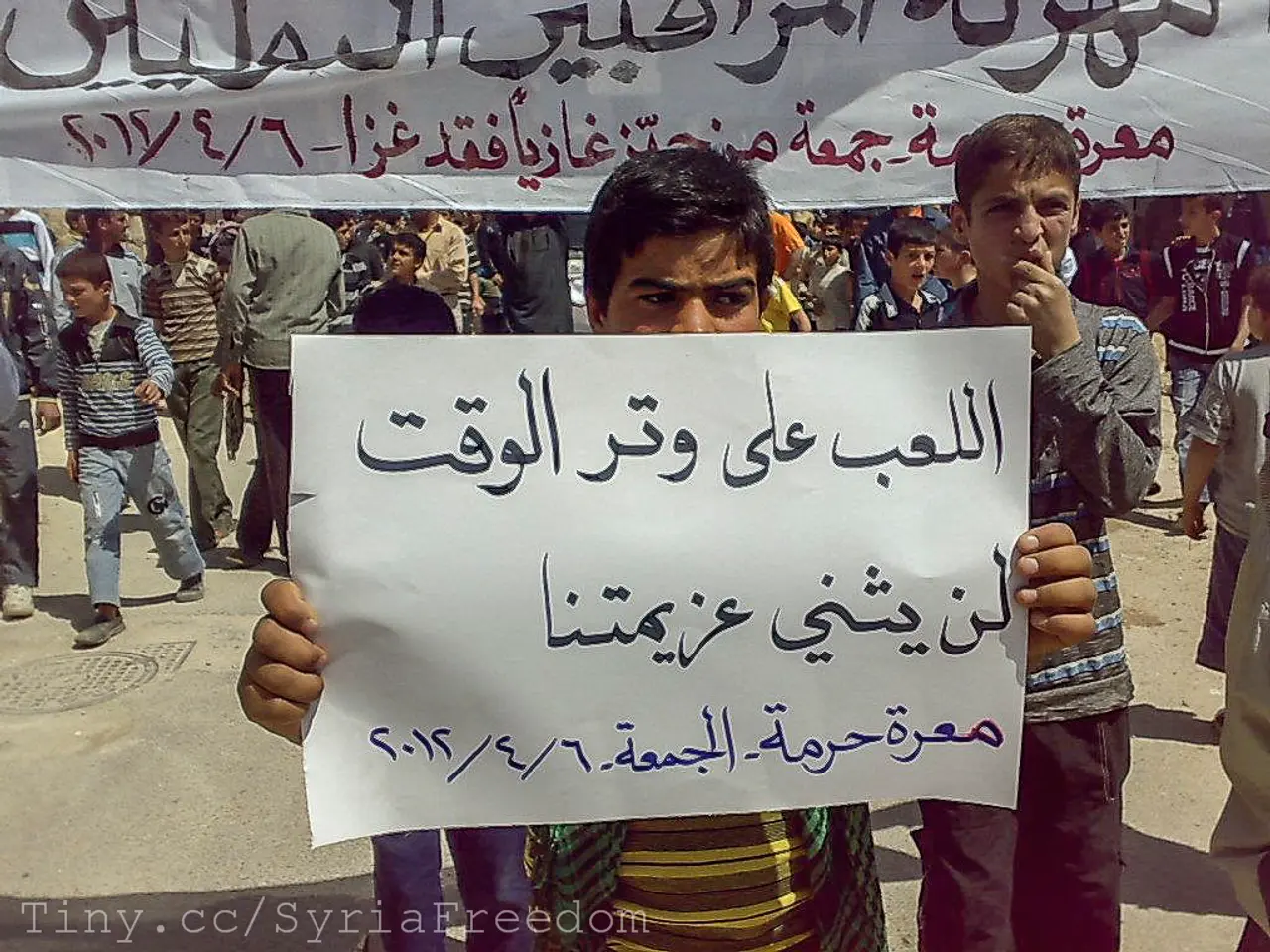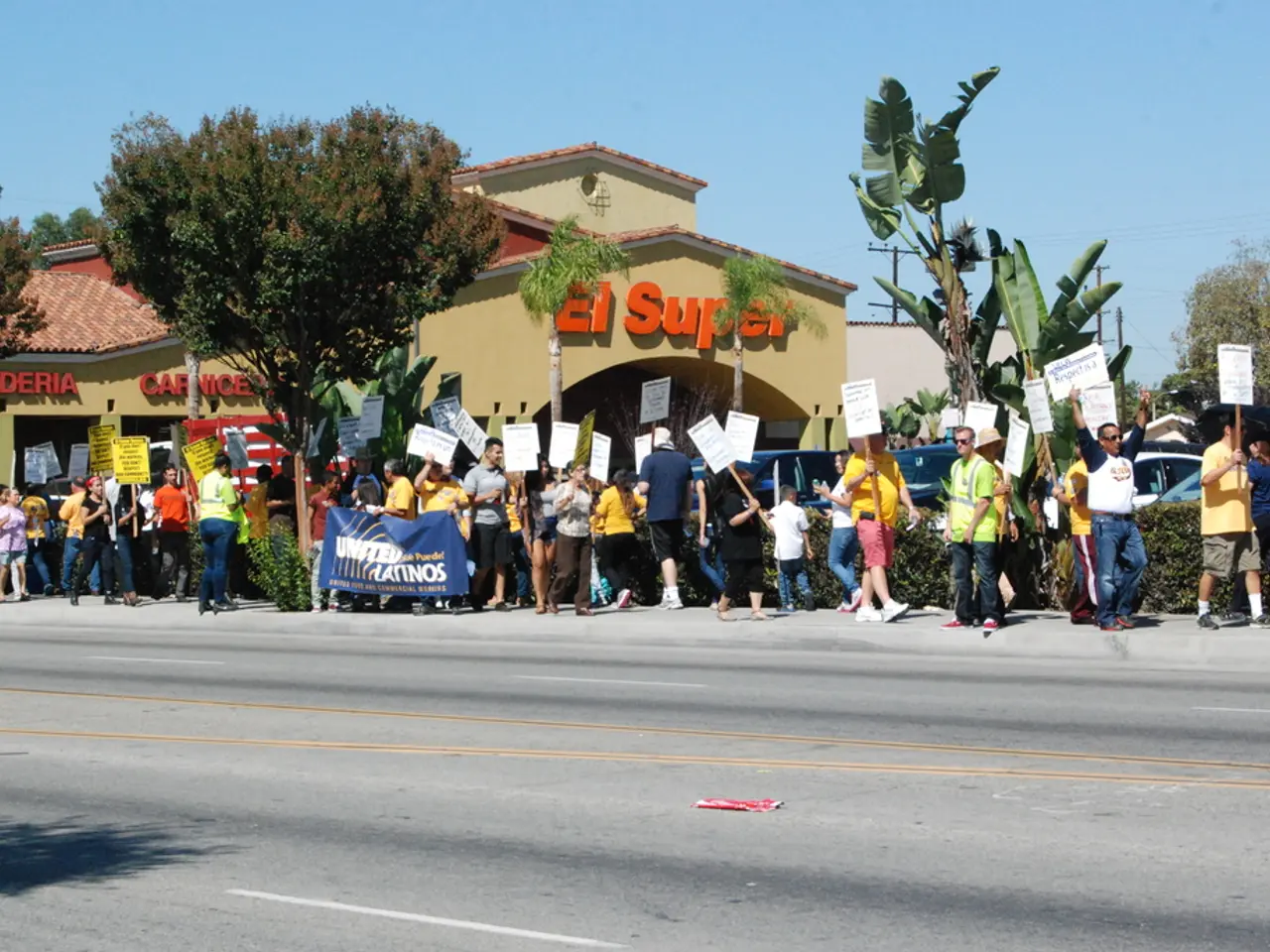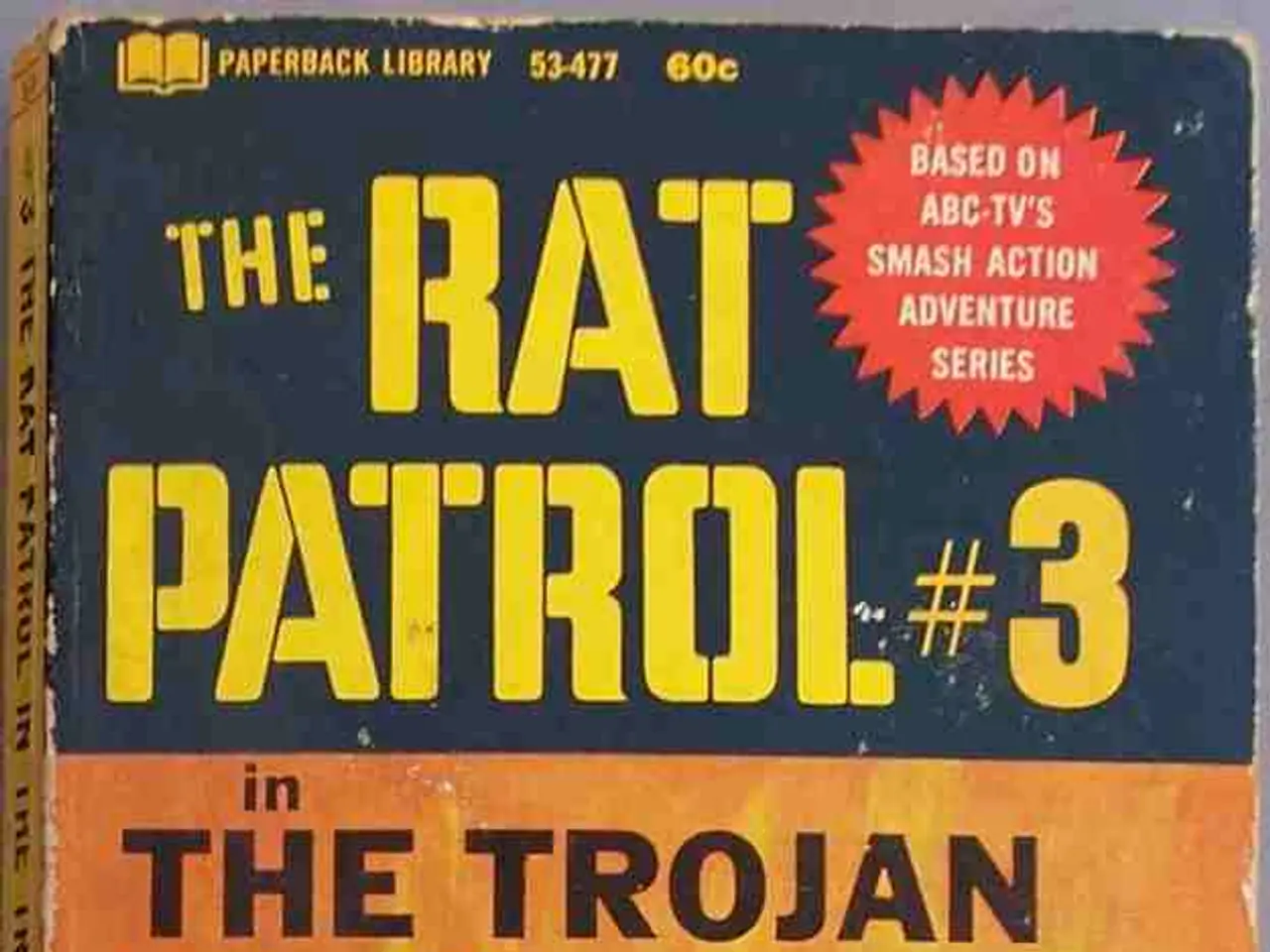Protesters Supporting Palestine Action Apprehended in London Upon Issuance of Terrorism Prohibition
In a significant turn of events, protesters in London were arrested on Saturday under the Terrorism Act, after the UK government officially designated the activist group Palestine Action as a banned terrorist organisation.
The ban, which came into effect on Friday, follows an overwhelming vote by MPs to proscribe the group under the Terrorism Act 2000, a decision later approved by the House of Lords. The move was upheld through the courts, with attempts by Palestine Action to delay or block the ban failing in both the High Court and the Court of Appeal.
The arrests occurred during a protest in Parliament Square, where demonstrators were rallying with placards reading "I oppose genocide. I support Palestine Action." Police arrested around 27 to 29 people on suspicion of terrorism offences linked to the proscribed group.
The Metropolitan Police confirmed that since Palestine Action was now proscribed, any public expression of support constituted a criminal offence. This includes chanting, wearing clothing, and displaying articles such as flags, signs, or logos in support of the group.
Expressing support for Palestine Action is now punishable by up to 14 years in prison. The listing of Palestine Action alongside groups such as al Qaeda and ISIS underscores the severity with which UK authorities view the organisation's activities and support.
The ban on Palestine Action has sparked controversy and debate, with some arguing that it infringes on freedom of speech and expression. However, the government maintains that the group's actions pose a threat to national security and public safety.
This is a developing story and more updates will follow as information becomes available.
[1] BBC News, "Protesters arrested after Palestine Action banned under anti-terror laws," 5 July 2025,
[1] As the controversy surrounding the ban of Palestine Action unfolds, health professionals are expressing concern about potential impacts on general news reporting, particularly with the criminalization of public expression in the context of war-and-conflicts and crime-and-justice.
[2] Meanwhile, political analysts are scrutinizing the repercussions that this move may have on UK's international relations amidst ongoing disagreements and debates about the classifications of terrorist organizations.




